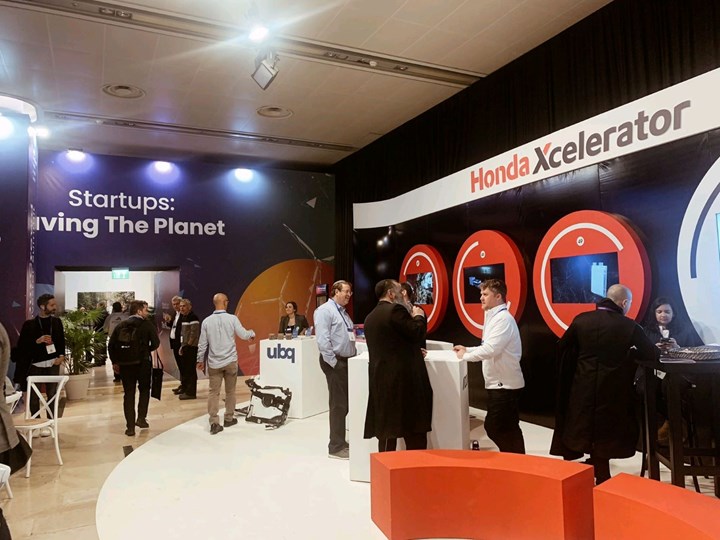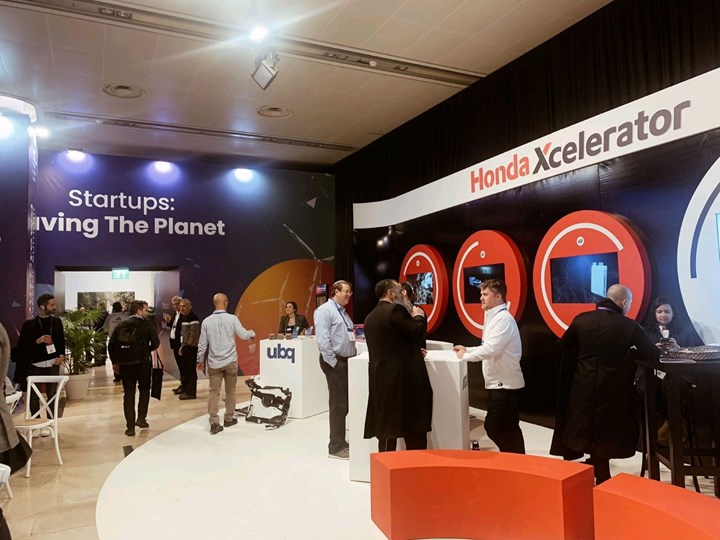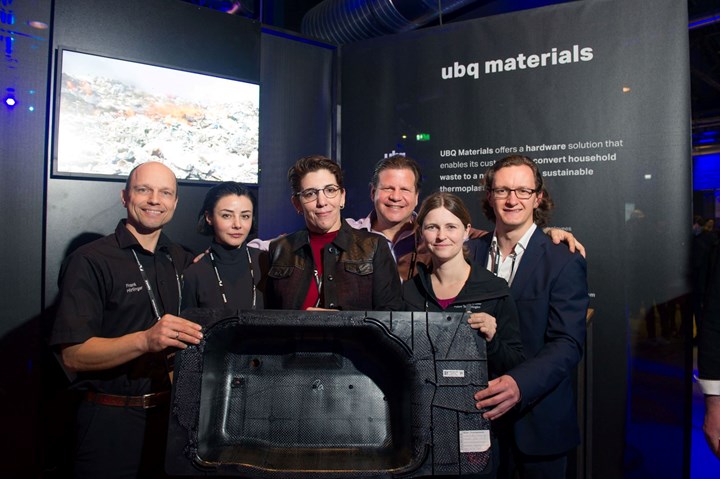
Honda Now Exploring UBQ’s Biobased Material Made from Unsorted Household Waste

Photo Credit: UBQ Materials
Within the last two years, we have reported on UBQ Materials, an Israeli climate technology developer of advanced materials and its industry collaborations. The company’s patented conversion technology has resulted in UBQ, said to be the world’s first biobased thermoplastic made entirely of unsorted household waste, including all organics.
In January of this year, we reported on the first of a new series of “eco-conscious” TPEs from Teknor Apex made with 35% sustainable content which includes UBQ. The new high-flow Monprene TPE, initially available in 70 Shore A and colored black, is designed specifically for injection molding or overmolding onto PP—making it ideally suited for consumer product applications that require flexibility such as hand and power tools, consumer electronics and appliances that include soft-touch components, for anti-slip, comfort grip, and improved ergonomics, as well as automotive floor mats.
Currently, the company’s primary technology is focused on injection molding, replacing PP or TPE with UBQ. Added a key source at UBQ, when asked by PT to elaborate recently, “At this time UBQ™, being biobased, is limited in its compatibility to materials processable at below 392 F (200 C). The company is continuing to develop its material and expanding its capacity and compatibility with additional polymers and applications. Today, for automotive applications, UBQ is compatible primarily with PP, PVC, selected grades of PS and ABS, as well as TPEs and TPOs. It is through partnerships with expert compounders such as Teknor Apex, Polyram and Resirene, that we can maximize the compatibility and bring customized compounds “Made with UBQ” to the automotive industry.”
In addition to its partnership with Teknor, has been working with Mercedes Benz, first producing a prototype battery housing and now with a serial automotive part already in production with UBQ – a cable channel cover in its EQA and EQS models. Simultaneously, UBQ Materials is in advanced validation stages of dozens of interior, exterior and under-the-hood applications with various automotive OEM’s and Tier 1 companies. According to a UBQ source, some of these parts can also be coated, painted, and even visually prominent within the car model. Other non-automotive applications include food trays made by Arcos Dorados Holdings (a company that owns McDonald’s based in Latin America).
The latest from UBQ took place at the OurCrowd Global Investor Summit in mid-Febrruary, in Jerusalem. UBQ Materials was showcased by Honda’s Xcelerator program as one of three innovative solutions bringing automotive manufacturing into a sustainable future. Said Honda Innovations’ CEO Nick Sugimoto on how the company’s Honda Xcelerator program seeks to discover private company technologies tackling some of the world’s most pressing threats, including climate change, “We are committed to making Honda totally carbon neutral by 2050. Through our investment in startups in the sustainability and manufacturing sectors we can achieve this goal together.” Added co-CEO and co-founder of UBQ Tato Bigio, “Companies like Honda, with a mission for carbon neutrality or zero environmental impact, represent the shift that we see across all industries, prioritizing planet alongside profit. Sustainability at every stage of the supply chain, including raw materials, is quickly becoming the standard of the industry.”

Photo Credit: UBQ Materials
As reported last year, UBQ also partnered with Israel’s polymer-metallization specialist Polymertal, which develops cutting-edge metal plating processes for the creation of complex, cost-effective metal-polymer hybrid parts. Through this partnership, Polymertal has developed SPP-50XX, a new sustainable material with metallic properties that contains the UBQ material in the base substrate. More specifically, SPP-50XX is comprised of 20% UBQ and 80% PP. On top of this substrate, a layer of copper and nickel of varying thicknesses serve as the metal plating. It is targeted to applications that require materials that are lightweight, withstand high-temperature environments, and are thermally and electrically conductive. In addition to reportedly exhibiting these features, SPP-50XX, the presence of UBQ in this material brings sustainability earlier in the supply chain, making it even easier for manufacturers to reduce the overall carbon footprint of their end products.
In Israel, UBQ has been working with the Keter Group and Carmel Olefins Ltd. from Israel’s petrochemical company Bazan Group. In fact, its agreement with Carmel Olefins (CAOL) in cooperation with Ducor Petrochemicals, CAOL’s subsidiary in Rotterdam, Netherlands, is going to result in the start-up of production facility in the second half of this year. The UBQ thermoplastic will be incorporated into CAOL and Ducor’s development of “Eco Capilene,” a new resin market offering of specialty polypropylene, providing carbon-reduced and recyclable materials to manufacturers. Initial annual capacity is expected to be around 22 million lbs.

Leave a Reply